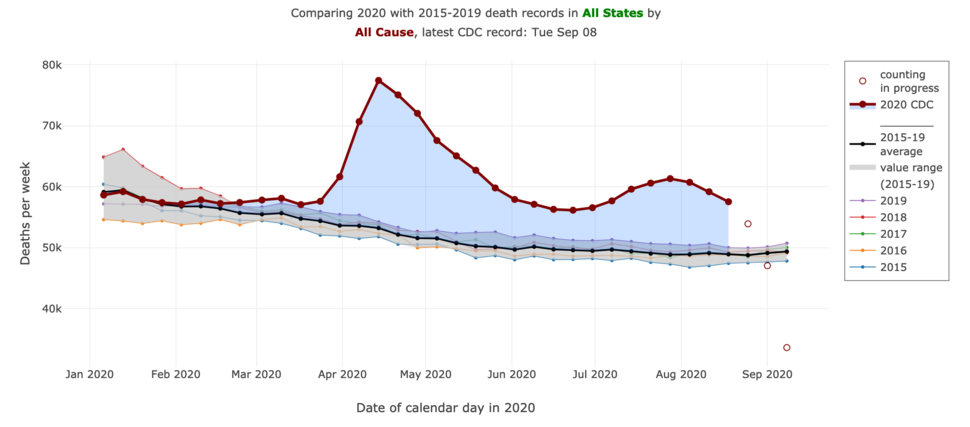COVID-era Research in DCEG: An Update from Sharon Savage, Clinical Director
, by Sharon A. Savage, M.D., Clinical Director & Chief, Clinical Genetics Branch
While DCEG remains focused on our primary mission of discovering the causes of cancer and means of prevention, we are also applying our expertise to accelerate our understanding of the range of outcomes in patients with COVID-19 and identify those at greatest risk.
Across the biomedical research community, investigators have turned their attention to the pandemic with the hope of uncovering clues that would help identify those at greatest risk of adverse outcomes from COVID-19 infections, lessen the severity of those outcomes, and develop therapeutics and vaccines.
As part of the NCI COVID Response Team, Division Director Stephen J. Chanock, M.D., and I participate in determining the allocation of available resources to the research effort and planning for the protection of NCI staff.
DCEG scientists often engage in nimble design of studies and rapidly pivot to address emerging research questions. Key investigators are applying their expertise in analyzing cancer incidence trends, assay development, germline genomics, and other techniques to COVID-19 research.
COVID-Mortality Tracker
Our epidemiologists and data scientists responded rapidly to the pandemic with the design and launch of a data visualization tool, the COVID-Mortality Tracker, to monitor weekly U.S. trends in overall and cause-specific mortality since the onset of the pandemic. The nature of this rapidly changing public health crisis presents numerous obstacles related to identifying the causes of mortality. The tool displays publicly-available, provisional vital statistics data from the National Center for Vital Statistics at the Centers for Disease Control and Prevention (CDC).
Data visualization allows investigators to monitor the broader impact of COVID-19 on overall and specific causes of death, revealing patterns and generating potential research questions. The team plans to continue to monitor trends in cause-specific mortality rates over time to capture the long-term consequences of the pandemic.
COVNET: Large-scale Genome-wide Association Study and Whole Genome Sequencing of COVID-19 Severity
The goal of COVNET is to conduct large genome-wide association studies (GWAS) to identify germline genetic variants associated with susceptibility to severe or fatal COVID-19 disease.
By genotyping COVID-19-positive individuals, we can investigate both common and rare variants associated with differences in disease outcomes. Ultimately, these findings may inform the triage of newly diagnosed cases, suggest novel treatments, or identify segments of the population that may be at elevated risk of severe outcomes.
The urgency of this pandemic necessitates rapid data sharing. Consequently, we are developing new ways of organizing multi-institutional collaborations with extramural groups to share samples and data quickly in order to conduct the most robust study possible.
COVIDcode
COVIDcode is a collaboration with the National Human Genome Research Institute and the National Institute of Allergy and Infectious Diseases to learn more about genetic and immunologic contributions to severity of COVID-19 disease. Distinct from COVNET, this study is actively enrolling study participants, including NIH Clinical Center patients and NIH staff. We are currently expanding the protocol to allow individuals in the community with documented SARS-CoV-2 infection to volunteer for the study.
The COV2Base Study
In collaboration with the National Heart, Lung, and Blood Institute, DCEG investigators are participating in the COV2Base Study, which seeks to examine the effect of SARS-CoV2 infection on patients with rare diseases. This study aims to quantify the frequency and severity of SARS-CoV-2 infection in patients with rare diseases (e.g., Li-Fraumeni syndrome, DICER1-syndrome) and identify conditions that increase risk of severe outcomes.
Additionally, this project will work to ascertain gene-, tissue- or sociodemographic-level features that increase risk of severe COVID-19 outcomes and may inform future genetic modifier studies.
COVCan: The COVID-19 and Cancer Linkage Study
In collaboration with state health departments, DCEG investigators are leading an effort to link data from several state cancer registries and COVID-19 surveillance systems. The COVID-19 and Cancer Linkage (COVCan) Study will allow investigators to assess the risk of COVID-19 hospitalization and death among cancer patients and survivors, as well as identify patient characteristics and cancer sites most strongly associated with severe COVID-19.
Update on DCEG Clinical Research
In my role as Clinical Director for DCEG, I am focused on returning our patients and clinicians to the NIH Clinical Center safely so they may continue the important work of our natural history studies of familial cancer predisposition syndromes. These studies have remained paused since March 2020 in order to minimize risk to research participants.
We recently resumed cancer screening in the Li-Fraumeni Syndrome study, prioritizing patients who can drive to the NIH Clinical Center.

